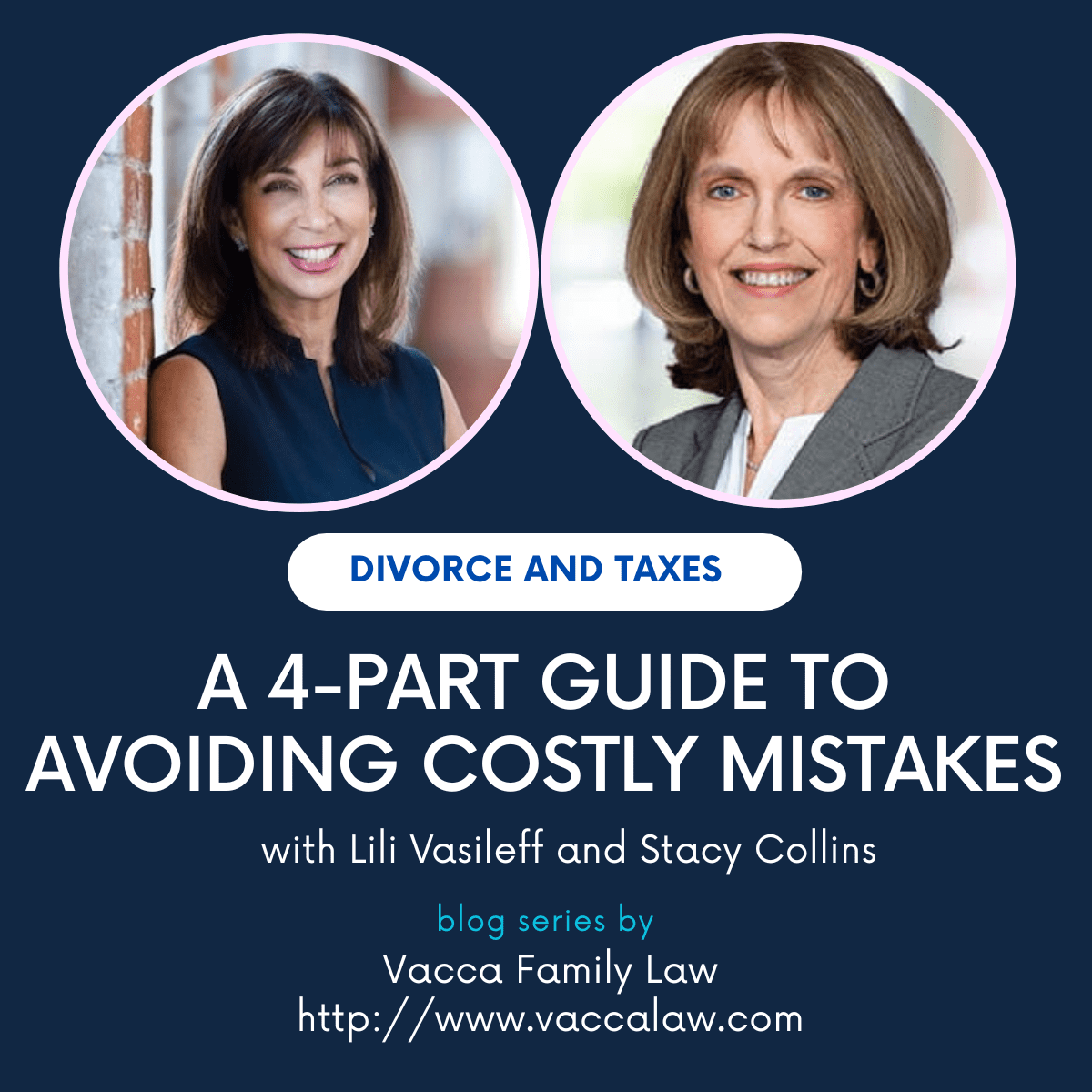By FPA Member Lili A. Vasileff, CFP®, CDFA™
Published: January 27, 2012
As Baby Boomers approach the last hurdle before the magic retirement age of 65, it is becoming increasingly newsworthy that growing legions of older Americans are untying the marital knot. With this trend for “gray” divorces, there are several challenges: dividing one household into two; re-evaluating near term retirement and estate planning goals; addressing gaps in health insurance coverages; re-examining investment decisions for longer life expectancies. It is truly a “perfect storm” where not only are your financial goals turned upside down, but planning is further complicated by emotional and psychological turmoil affecting your rational decision-making.
Every 10 seconds a Boomer turns 60 years old.1 Boomers are unlike predecessor generations in a myriad of ways. One of the most pronounced differences is that there was a shift in attitudes to more of a “me” generation focused on personal rewards and self fulfillment.
So has this attitude resulted in an increasing rate of gray divorces? Surprisingly, the answer is no. The divorce rates for seniors have remained nearly steady since the 1970s.2 The surge in divorcing Boomers actually reflects that more divorced adults are becoming divorced seniors. More Boomer women initiate divorce (66 percent) and claim satisfaction (70 percent) than men.3 The biggest fear expressed about divorce is the prospect of living alone. Interestingly, the traditional moral taboo against divorce has little effect on holding together troubled marriages.
Yet most divorced Boomers are not living alone. The number of Boomers cohabiting has nearly doubled in the last decade. What stops many Boomers from remarrying is the prospect of financial loss. Remarriage may mean giving up alimony, a former spouse’s medical insurance, a former spouse’s pension and/or their Social Security benefits. Other factors that weigh heavily against remarriage include the influences of adult children and the likelihood that one or both Boomers may be care givers and/or may provide primary financial support for ailing elderly parents.
The reality for most Boomers is that expectations will be different during retirement years and planning needs cannot be ignored or postponed during a major life transition such as divorce. A divorce financial planner can address your fears, anxieties and actual financial challenges as you approach retirement, simultaneously with specific divorce financial issues. The perfect storm is an opportunity to address comprehensive personal financial goals and allows for contingency planning by forward thinking.
Key points for you to address during the divorce process must include these subject areas:
- Your credit rating: Have you or your ex-spouse impaired your creditworthiness and affected the cost of your health, auto, life, or homeowners insurances? Are there any individual debts in your name such as your mortgage, car loan, or security/down payment on housing?
- Your individual financial identity: Are you able to qualify individually for loans, credit cards and insurances? At your age, what are the added costs to begin a fresh new financial identify?
- Your health insurance: Will your health insurance coverage under COBRA fall short of you qualifying for Medicare? What can you do to fill the gaps in coverage and at what cost? Can you delay the divorce to sustain COBRA until Medicare eligibility if you have health issues? In many cases, spouses with medical histories may feel either held hostage in the existing relationship or thwarted from entering a new one. Demographically, women face a higher risk of being uninsured.
- Social Security eligibility: Will you qualify for Social Security on your own or on your ex-spouse’s record? Be aware of the criteria for qualifying under your ex-spouse’s — stay married for at least 10 years, and remain unmarried at age 60 at time of application for benefits.
- Social Security strategy: Should you take your own Social Security benefits at an early retirement age and defer electing your ex-spouse’s until later age (or vice versa)? Be sure you know the criteria for disclaiming benefits, deferring until later dates, etc.
- Pensions: Nearly 41 percent of Boomers receive pensions.4 You need to stay informed of your ex-spouse’s employer and pension terms; notify them when you elect to receive benefits; be aware of any time or event triggers when your ex-spouse can elect that may impact your benefits.
- Estate plans: You need to revamp your estate plan (redo wills, POAs, health care proxy, living will, etc.) and beneficiary designations post divorce. Be sure to maximize your estate and gifting strategies. A divorce financial planner recognizes unique opportunities that may allow for greater estate tax savings otherwise unobtainable in the non-divorce setting.
- Future families: Protecting heirs may be an implicit or explicit goal during divorce, especially in light of remarriages, second families and adult children. The ex-spouse, one’s own children, the new spouse or partner, and estate taxes all are interrelated and require careful attention to be sure your intent and wishes are carried forward accurately.
- Protect and preserve wealth: Lastly, if you wish to protect assets from dissipation (either to creditors, an ex-spouse or children), a divorce financial planner can advise you of the factors by which the court weighs the consequences of actions taken by you and your ex-spouse. To avoid traps that the Internal Revenue Service (IRS) closes in on, special rules apply to alimony, child support and property settlements per a written agreement certified by the court.
In summary, a divorce financial planner brings comprehensive expertise about personal finance to the divorce process and will help analyze the many dimensions of financial challenges facing Boomers who divorce. While many of never expect divorce in your later years, a divorce financial planner can help ease your anxieties and fears by carefully evaluating your goals, strategies, and options during divorce to secure the financial future you desire.
1 Selected characteristics of Baby Boomers 42 to 60 years old in 2006; Age and Special Population Branch Population Division, U.S. Census Bureau Washington D.C., 11/04/2009.
2 U.S. Census Bureau Study, 11/4/2009
3 U.S. Census Bureau Study, 11/4/2009
4 Jack VanDerhei and Craig Copeland, “The EBRI Retirement Readiness Rating”™: Retirement Income Preparation and Future Prospects”, July, 2010 Issue Brief, No. 344.
FPA Member Lili A. Vasileff, CFP®, CDFA™, is President of the Association of Divorce Financial Planners.
This article is available online on the FPA website at: https://www.plannersearch.org/financial-planning/the-perfect-storm-divorcing-baby-boomers



